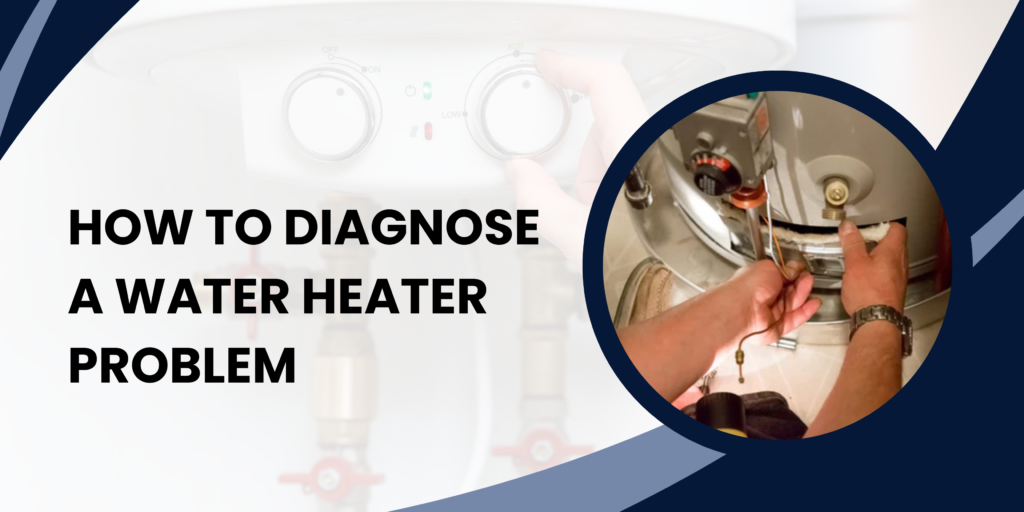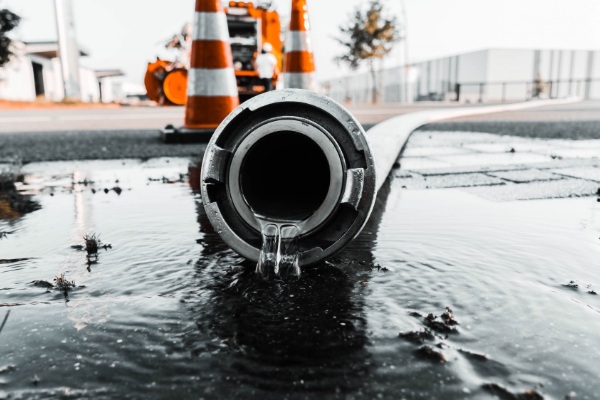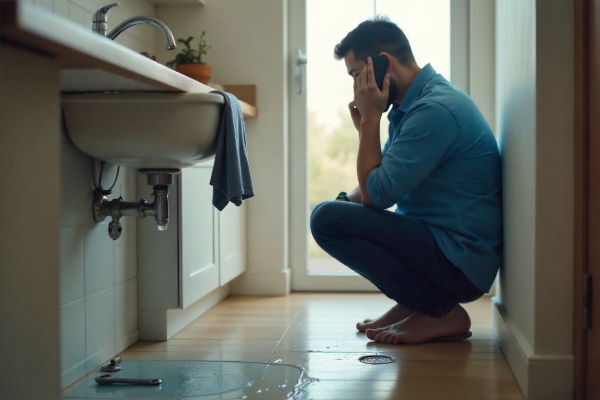Water heaters are essential for daily comfort, but when they break down, it can be frustrating. Whether you have an electric or gas water heater, diagnosing problems early can help save time and money. In this guide, we’ll walk you through common water heater problems, troubleshooting tips, and when to call a professional for repairs.
How to Diagnose a Water Heater Problem
Diagnosing water heater issues can seem intimidating, but knowing what to look for can help you pinpoint the problem. Whether it’s no hot water, strange noises, or leaks, here’s how to identify common issues and understand what might be going wrong.
Common Signs of Water Heater Issues
Some common signs that your water heater needs attention include:
- No hot water or water that doesn’t stay hot
- Strange noises, such as popping or rumbling sounds
- Water discoloration or rusty water
- Leaking around the base of the water heater
- Water temperature fluctuations
Each of these symptoms can indicate a variety of issues, but recognizing these signs early can help prevent more serious problems.
Steps to Identify Problems with Your Water Heater
- Check the thermostat settings: Ensure the thermostat is set to the desired temperature.
- Inspect the power supply or gas supply: Confirm whether your heater is receiving electricity or gas.
- Look for signs of corrosion or leaks: Corrosion can cause malfunctioning, and leaks could signal a more severe problem.
- Listen for strange noises: Popping or rumbling sounds usually indicate sediment buildup in the tank.
How to Diagnose Electric and Gas Water Heater Problems
Electric and gas water heaters can have different issues. However, some signs are common to both, such as no hot water or leaks. Understanding the specific problem with your water heater will help you choose the right troubleshooting steps.
Why Is My Electric Water Heater Not Working?
If you have an electric water heater and it’s not working, several potential issues could be causing the problem. Let’s explore some common causes and solutions.
Troubleshooting Tips for Electric Water Heaters
- Check the thermostat settings: If the thermostat is set too low, the water may not reach the desired temperature.
- Examine the circuit breaker: A tripped circuit breaker can cut power to the heater.
- Inspect the heating elements: If one or both heating elements are faulty, the heater won’t heat water efficiently.
Checking the Power Supply and Thermostat
Ensure that the power supply is working and that the thermostat is set to the right temperature. The average temperature for a water heater should be around 120°F. If your thermostat isn’t responding or is malfunctioning, it may need replacement.
The Role of the Reset Button in Fixing Electric Water Heaters
Many electric water heaters have a reset button on the thermostat. If the water heater is not heating properly, the reset button may have been triggered. Pressing the reset button can often solve the issue, especially if the problem is caused by an overload or malfunction.
Gas Water Heater Not Working? Here’s What to Do
Gas water heaters have different diagnostic steps compared to electric heaters. If your gas water heater isn’t working, here’s what you need to check.
Inspecting the Pilot Light and Gas Supply
The most common issue with a gas water heater is a pilot light that has gone out. Make sure the pilot light is lit. If it isn’t, follow the manufacturer’s instructions to relight it. If the pilot light keeps going out, the thermocouple might be faulty, or there could be a gas supply issue.
Common Issues with Gas Water Heaters
- No hot water: This could be caused by a malfunctioning thermostat or a faulty thermocouple.
- Inconsistent hot water: This could be due to gas supply issues or a buildup of sediment in the tank.
- Smelly water: This could indicate bacteria in the tank or a need for cleaning.
When to Call a Professional for Gas Water Heater Repairs
If you’ve checked the pilot light and gas supply but the heater is still not working, it’s time to call a professional plumber. Gas water heaters involve potentially dangerous components, and an expert should handle repairs related to the gas supply or thermostat issues.
Hot Water Not Working but Cold Is: Causes and Fixes
If your water heater is only providing cold water, it’s a sign of a significant issue. Here are some common causes and solutions.
Understanding Why Only Cold Water Is Flowing
The most common cause of this issue is a broken heating element in electric water heaters or a malfunctioning thermocouple in gas heaters. Without a functioning heating component, the water remains cold.
Potential Problems with the Water Heater Thermostat
A malfunctioning thermostat could be the reason your water heater isn’t heating the water properly. If the thermostat is faulty, it may prevent the heater from reaching the desired temperature, causing only cold water to flow.
Sediment Build-Up and Its Impact on Hot Water Flow
Over time, sediment can build up at the bottom of your water heater, especially in areas with hard water. This sediment prevents the heating elements from working efficiently, and in some cases, it can block the flow of hot water entirely. Flushing the tank can help alleviate this problem.
How to Fix a Hot Water Heater Leak
Leaks are one of the most common issues homeowners face with water heaters. Here’s how to diagnose and fix a leaking hot water heater.
Identifying the Source of the Leak
Leaks can occur around the base of the water heater, from the tank, or from the fittings and connections. If the leak is coming from the tank itself, it could indicate a more serious issue, such as corrosion or a crack in the tank.
Steps to Repair a Leaking Hot Water Heater
- Turn off the power supply (electric or gas).
- Shut off the water supply to the tank.
- Drain the tank to prevent water damage.
- Inspect the connections for any loose fittings that could be causing the leak.
- Replace damaged components such as the valve, heating element, or tank itself.
When to Replace Your Water Heater Instead of Repairing It
If your water heater is more than 10 years old and is leaking, it may be time to replace it. Constant repairs can become costly, and a new unit will likely be more energy-efficient.
New Hot Water Heater Not Working?
If your newly installed hot water heater isn’t working, it could be due to several factors. Here’s how to troubleshoot a newly installed water heater.
Reasons Why a New Water Heater May Fail
- Improper installation: If the heater was installed incorrectly, it may not operate as expected.
- Electrical or gas supply issues: Make sure that the power or gas supply is functioning correctly.
- Faulty components: Occasionally, newly installed heaters come with defective components like thermostats or heating elements.
How to Troubleshoot a Newly Installed Electric Water Heater
Ensure that the thermostat is set correctly, the circuit breaker is working, and the wiring is properly connected. If the issue persists, the heater may need to be inspected by a professional.
Common Installation Errors and How to Fix Them
Some installation errors that could prevent the water heater from working properly include incorrect wiring, improper venting for gas heaters, or failure to fill the tank before powering it on. Ensure that all installation steps are followed precisely.
Finding Water Heater Repair Near Me
If troubleshooting doesn’t solve the issue, it may be time to hire a professional for repairs. Here’s how to find reliable water heater repair services nearby.
How to Choose a Reliable Water Heater Repair Service
Look for licensed professionals with experience in water heater repair. Check reviews, ask for references, and ensure they provide an estimate before starting the work.
Questions to Ask Before Hiring a Repair Professional
- Are you licensed and insured?
- How much experience do you have with water heaters?
- Can you provide a written estimate?
Tips for Locating Emergency Water Heater Repairs Nearby
If you need emergency repairs, look for 24/7 services in your area. Many plumbing companies offer emergency water heater repairs and can come to your home quickly to resolve the issue.
Diagnosing and fixing water heater problems can be a bit overwhelming, but understanding common issues and troubleshooting steps can help. Whether you have an electric or gas water heater, knowing how to identify problems early can save time and money. When in doubt, don’t hesitate to call a professional plumber to ensure your water heater is running efficiently and safely.





